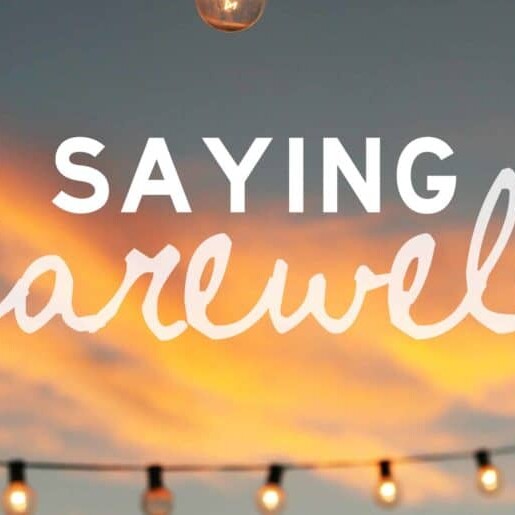“I am trying to shape my despair into some form of
action, but for now, I am standing
on the cold edge of grief”
– Terry Tempest Williams, “Erosion: Essays of Undoing”
Once in a Resonance Network digital gathering space, someone pointed out that the words remedy, remedial, and medicine have the same root. I thought immediately (ha!) of those other words, medial, media, mediation—you get the idea. I gathered around me my medicines, all the words whose roots pointed homewards—towards healing, a cure.
Mediation for example, is the act of going between, of committing to a middle road as a pathway out of harm. Remediation, on the other hand, is the act of returning to the table—of endeavoring towards repair and wholeness in the aftermath of rupture.
As a writer my remedy, my mediating and remediating force, has always been language, the medicine being its promise to deliver us from the oblivion of speechlessness. As I sit here, writing an essay about language in the belly of the empire, while Israel drops bombs on innocent Palestinians, I feel failed by language—all of it coming up dead and dull and impossibly stale. I walk away from my desk no less than twelve times in one day in search of awe. I find it in a sherbert colored field of Aspen shivering brightly against a steel gray sky. What a resistance. It stuns me, a field of energy so bright it sublimates every atom of grief within me.
Reflecting on the difference between remedy and redress, I realize there here aren’t many. Remedy being rooted in right medicine. As in the way Poplar trees, or rather, their extensive root networks, pull carcinogenic contaminants out of the soil, and hold them, gingerly, as we might a breath, before breaking the chemicals down into harmless salts.
Remedy as in: root medicine. As in healing balm. As in body memory. Redress as in to set right. To rectify. To Recompense. To make whole. To reconnect that which has been severed. As in our humanity. As in love, the balm that makes healing in all directions possible. As in the way my arms reach around my back when I learn the body needs eight hugs a day for maintenance, twelve hugs for growth.
What am I growing towards? You, hopefully. And you, me. Unless, we are only growing tired.
I keep asking myself: what are we doing here, with each other? As network practitioners of color, it can be difficult to assess accurately if the networks and organizations of which we are members are in right relationship with the values they profess. For example, a network will profess to be inclusive and liberatory, to value belonging for all people, while being membered by, and circulated amongst, mostly white, western, privileged people of the Global North.
All of this language—“right relationship” “right medicine”— is language I’ve heard in network spaces. And also, language sourced from indigenous peoples. Indigenous people whose land we occupy as settlers. In these instances, words like “belonging” and “inclusion” reveal themselves to be what they have always been, weak go-betweens, shaky approximations of intent.
I say this because the language of belonging and inclusion often used by networks is too easily hijacked. Inclusion is a border crossing. On the other side of belonging is dispossession. On the other side of dispossession, genocide.
As we watch a genocide unfold in Palestine, as we witness our government withhold aid and escalate tensions in the Middle East, as we cling to our comfort, find more and more ways to justify quiescence, I ask us: what is our work here, together? What of our language, it’s distance from action?
What has this latest aggression against a wholly unwitting civilian population deadened in us? It’s only been three weeks. Sure. But something in all of us has snapped shut. What is it? What in our faith, or our efforts, or our belief in humanity’s goodness needs resuscitation?
To be in “right relationship with” is to be accountable, to be transparent, to be willing to act, to reconcile harm, to repair rupture.
Now might be a helpful time to ask:
-
- What is the compelling vision of liberation that moves your network towards action?
- What does it mean to be in right relationship with language in this political moment?
- What does liberation mean, to you?
- How is your network transforming conditions, not just shifting systems, but co-creating the conditions necessary for joy, wholeness, safety, and freedom for all people, especially indigenous and colonized folks?
- What is your network’s relationship to settler colonialism?
- How is your network leveraging its resources to mediate the harm that Palestinians are experiencing?
- How are your networks in right relationship with muslim colleagues right now?
- Who are the Muslims in your network? What kind of support do they need right now?
Even trees are networked in ways that mediate harm to their most vulnerable. Younger trees siphon sap and sweetness to trees that have fallen. Standing trees bear the weight of their sick and diseased comrades.
How can your networks redistribute resources among those for whom speaking is now a danger? Whose names can you speak in rooms they have yet to enter?
Do not worry. Where there is rupture, there is repair. I learn this from old growth forests, from meadows abutting dumping grounds, from creek beds silly with soot and plastic caps.
What else?
Where there is transgression, wounding, there is slow growth, reclamation, amendment.
Where there is a before, there is an after, a place to rebuild.
And for those of us who’ve been harmed by the same systems we daily navigate and who’ve witnessed others be harmed by them as well, we can become afraid to take up power out of fear that we too will replicate the same harm we experienced.
But engaging power from a love-centered and care-full place, might be just the remediation of power we need. By not abdicating power, by not giving in to despair in the face of systemic abuse, we become a bridge for others to step out of not only speechlessness, but inaction.
Where can you take up power today and ask for redress? Here are a list of resources you and your networks can engage to support Palestinians in need:

about the author, Sadia Hassan
Liberatory Leadership Manager, Leadership Learning Community
I am a Somali, Muslim poet from a deep and matrixed refugee community in east Atlanta. I am grateful for the love and encouragement I received from my community as a young person to ask as many questions as I need to make sense of the world. As an educator, I am inspired by LLC’s commitment to play and curiosity in service of collective liberation. I come to this work as a teacher, poet, network weaver and facilitator who loves to travel, read, and make other people’s fur babies fall in love with me.
featured image found HERE
Related Posts
September 24, 2025
Thank you & Farewell
November 4, 2024



